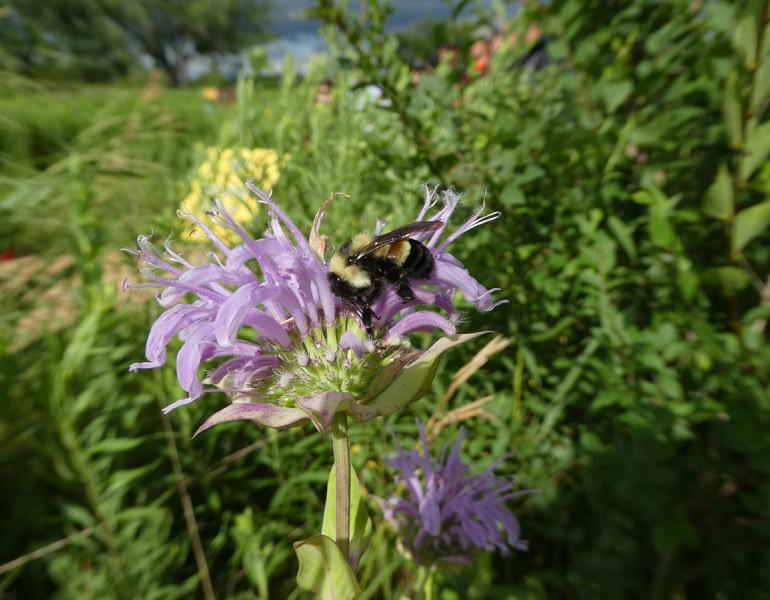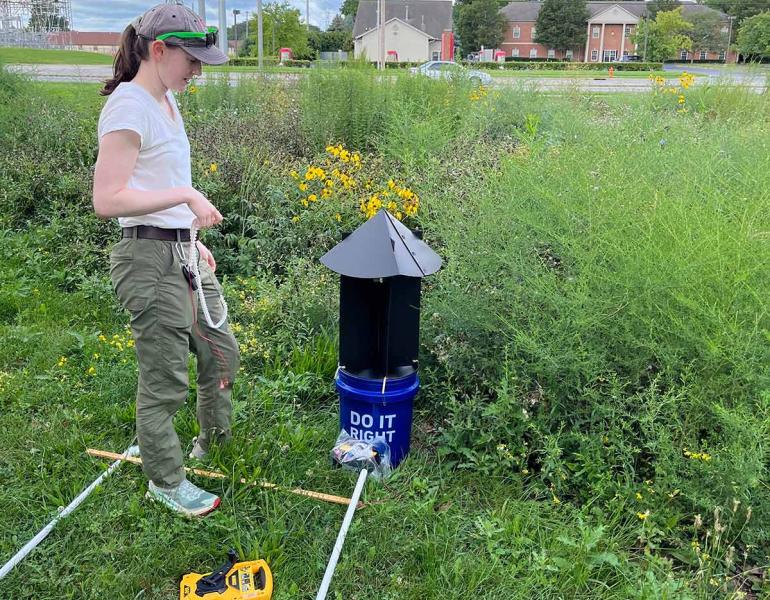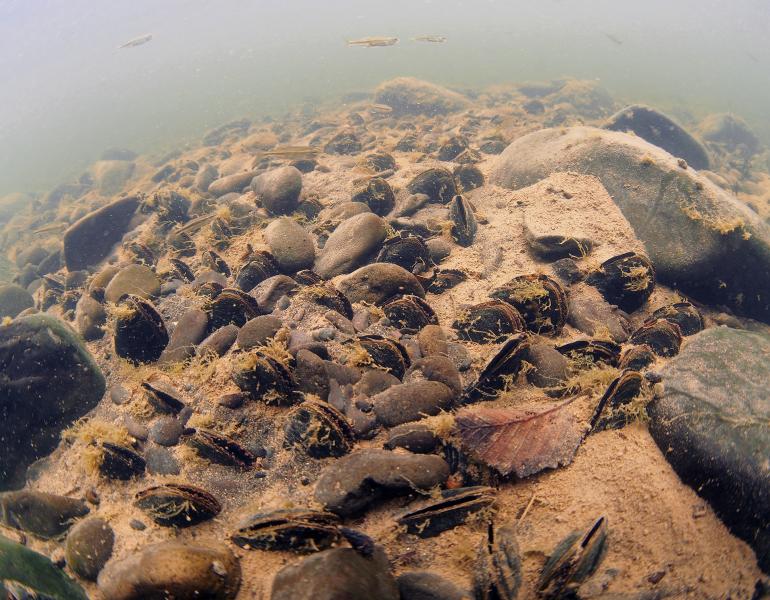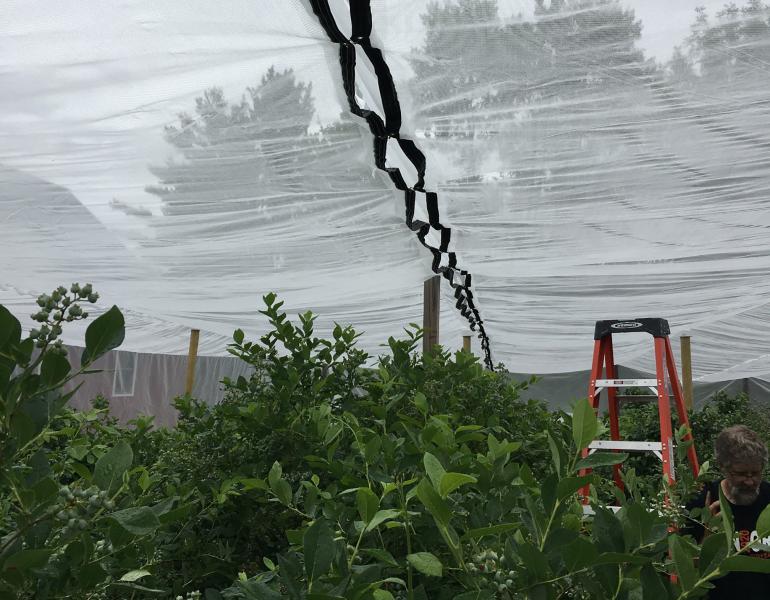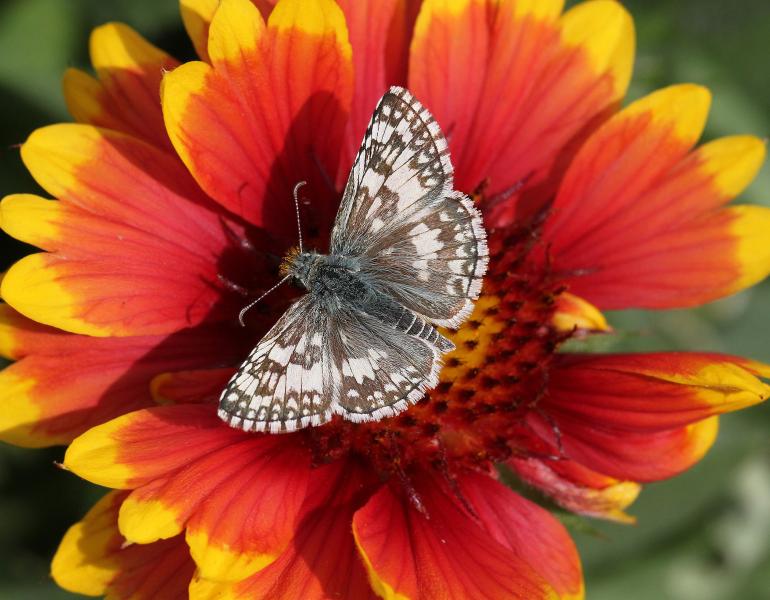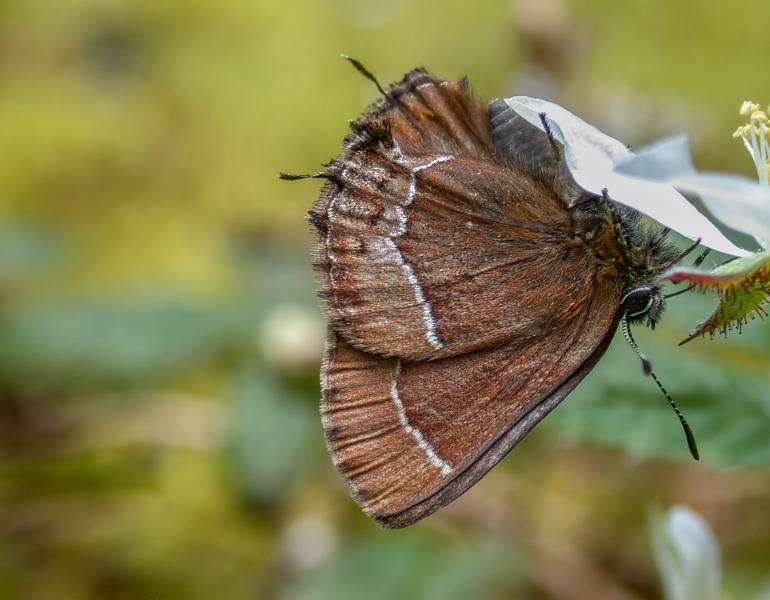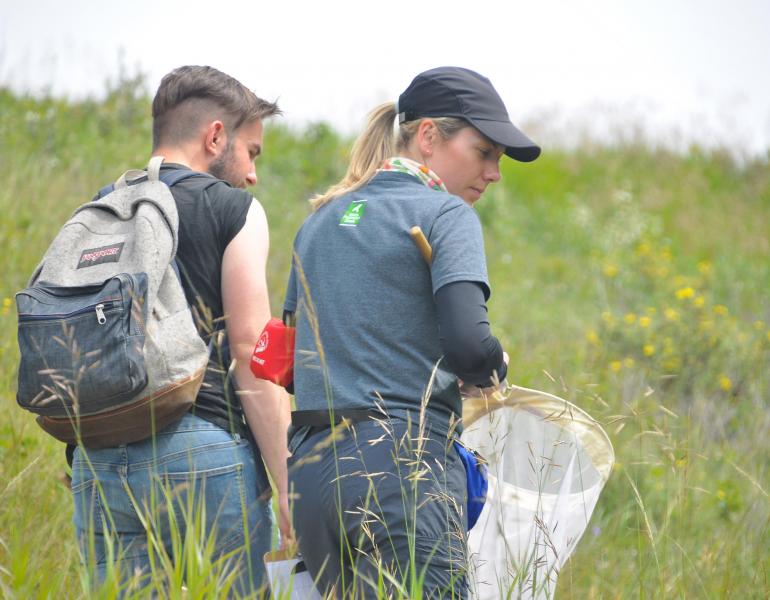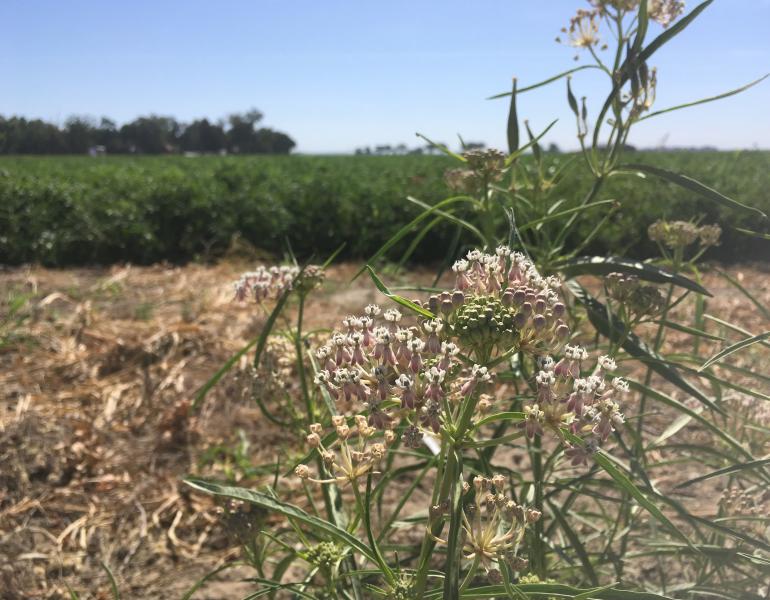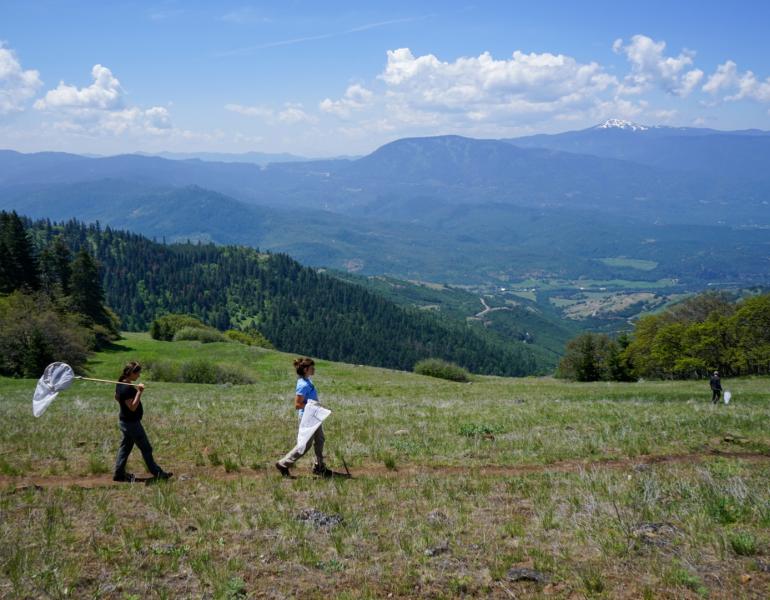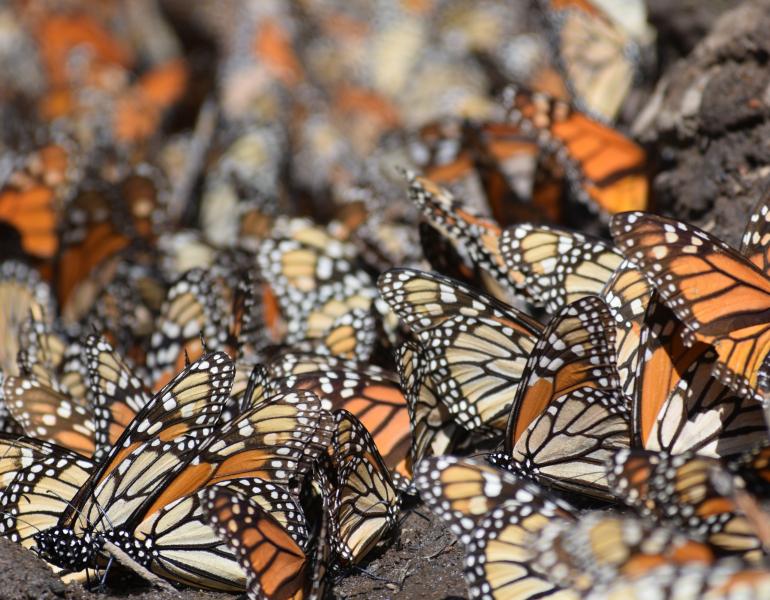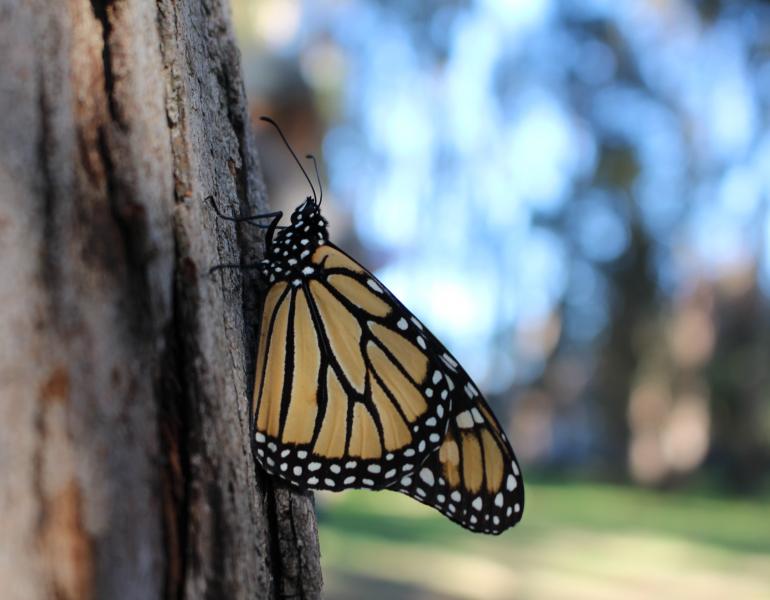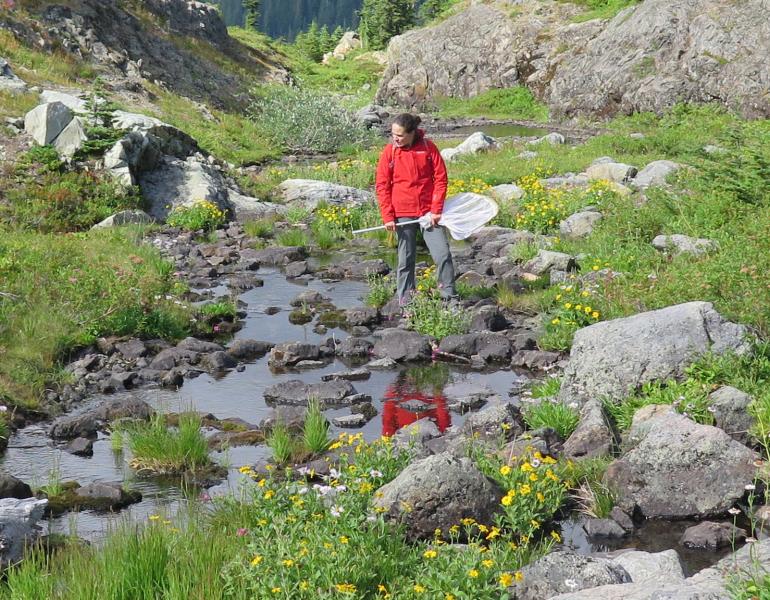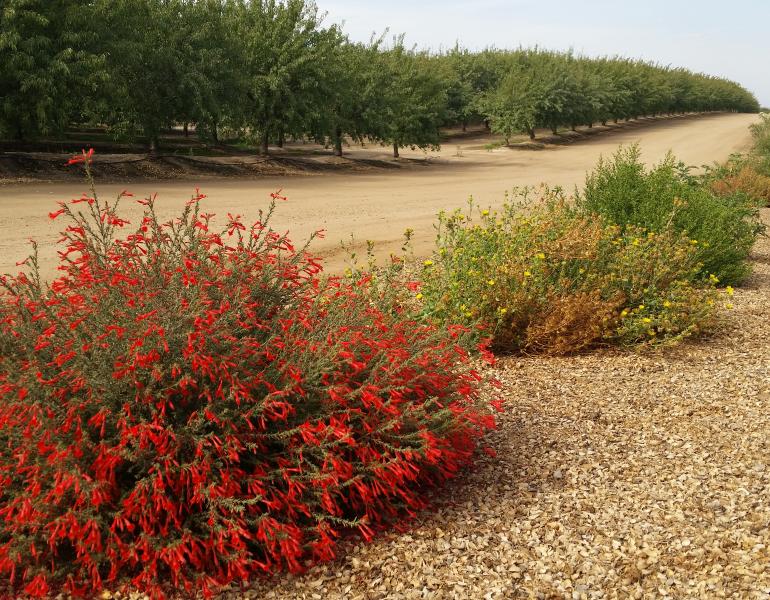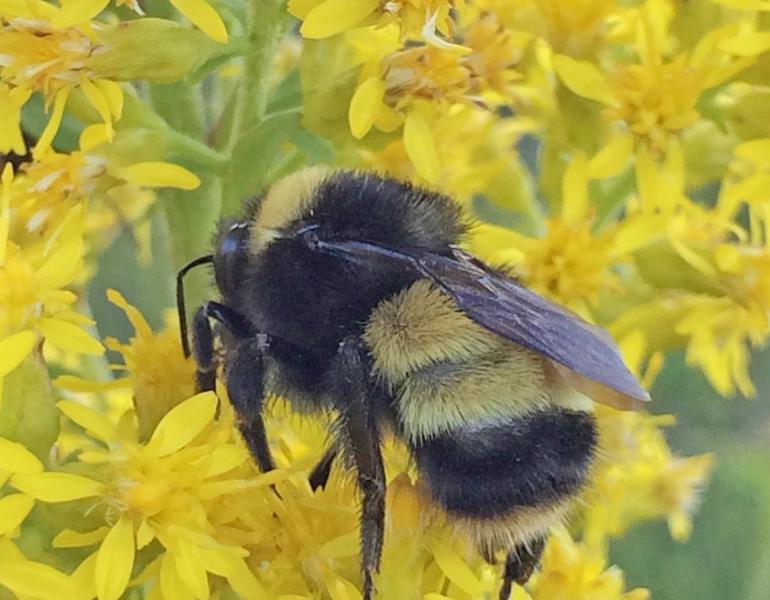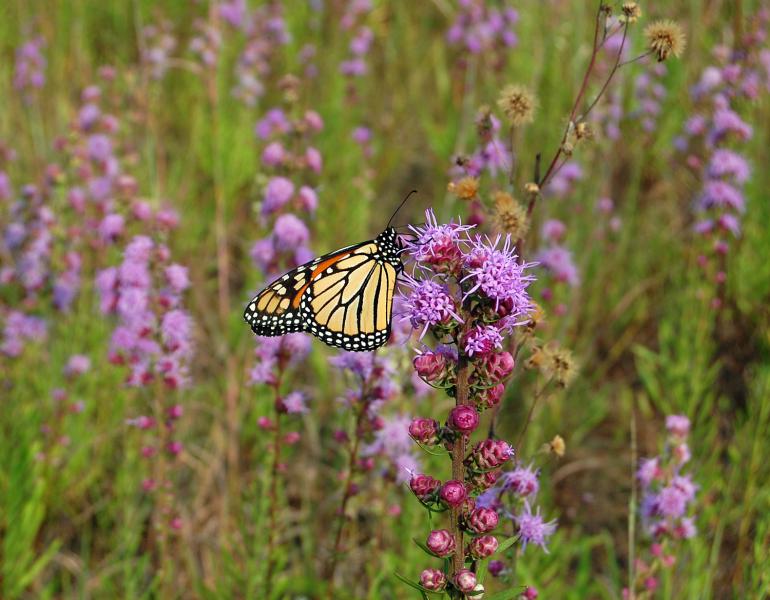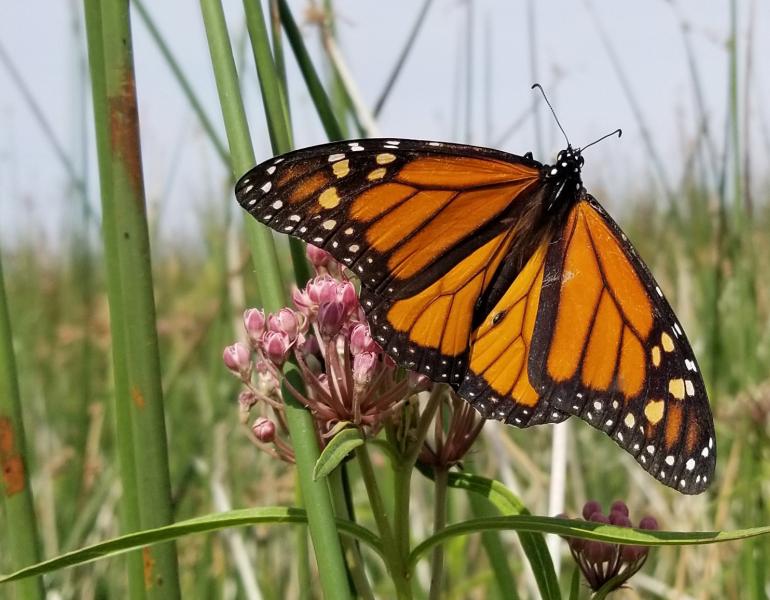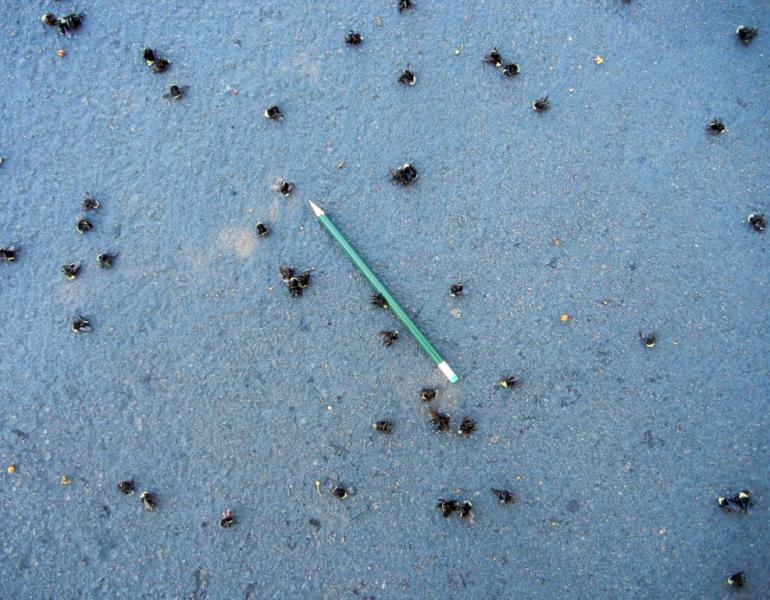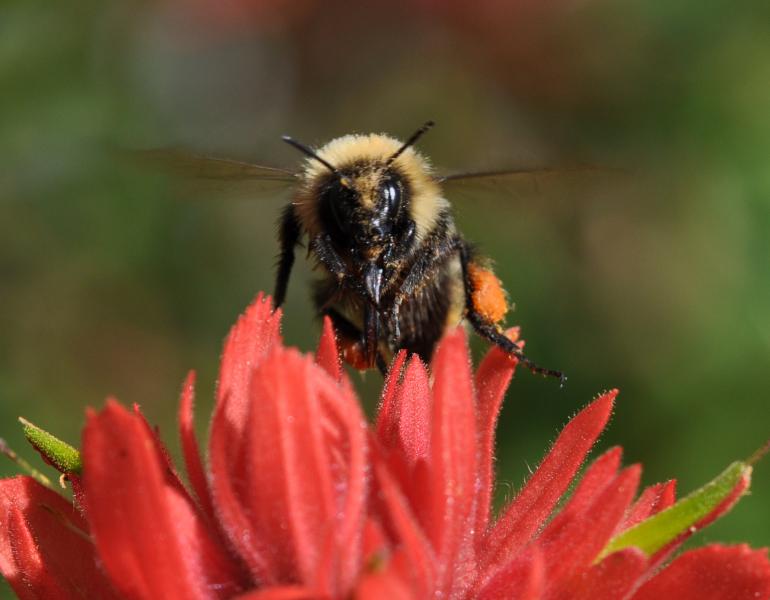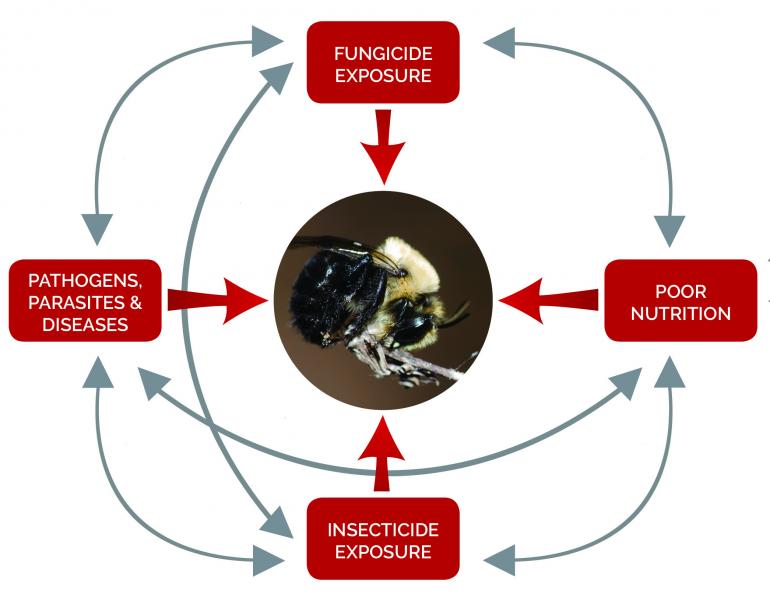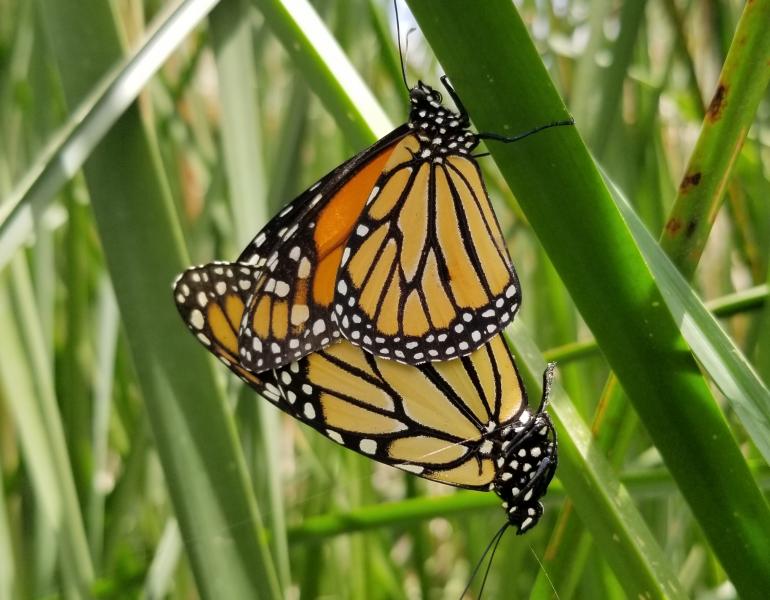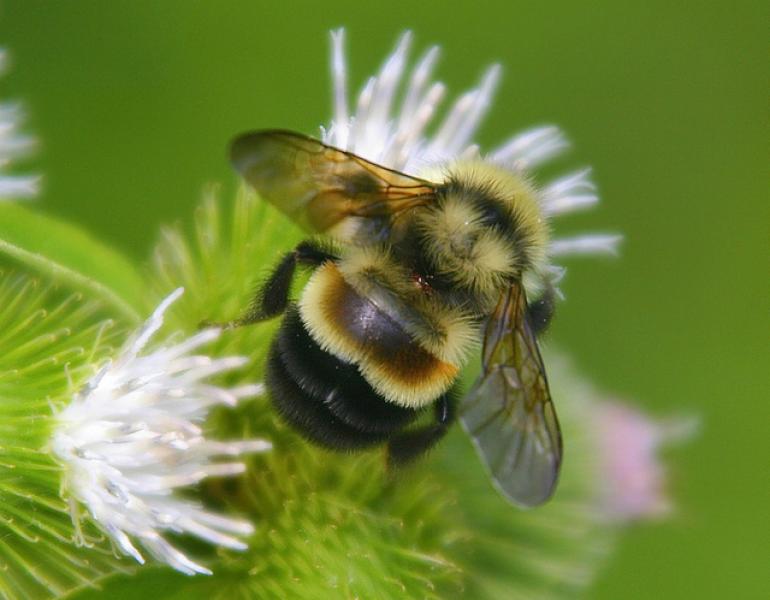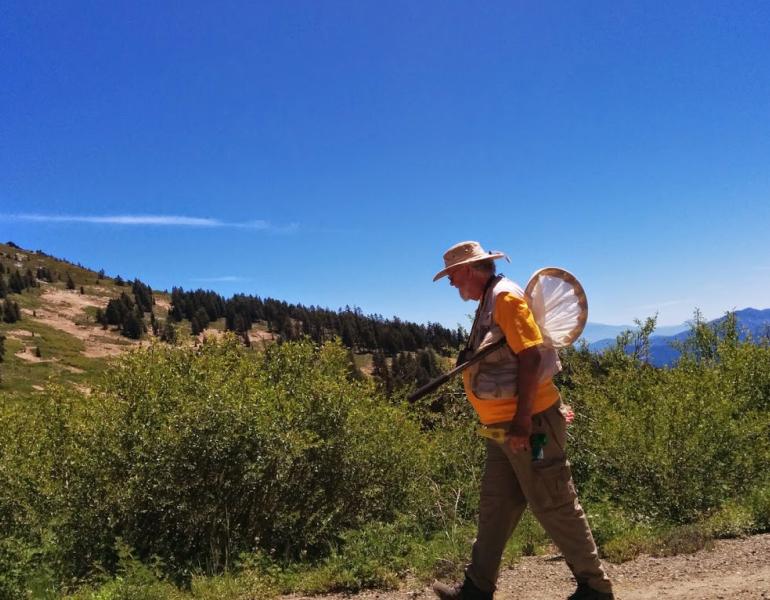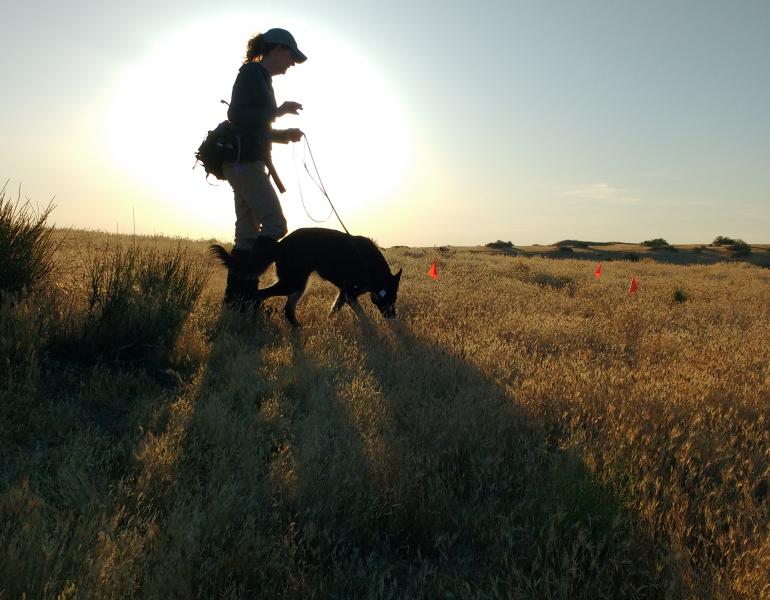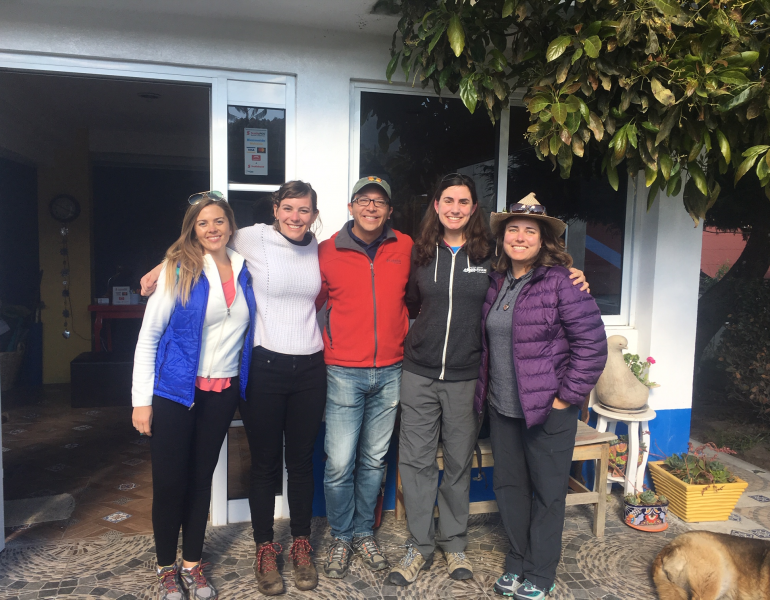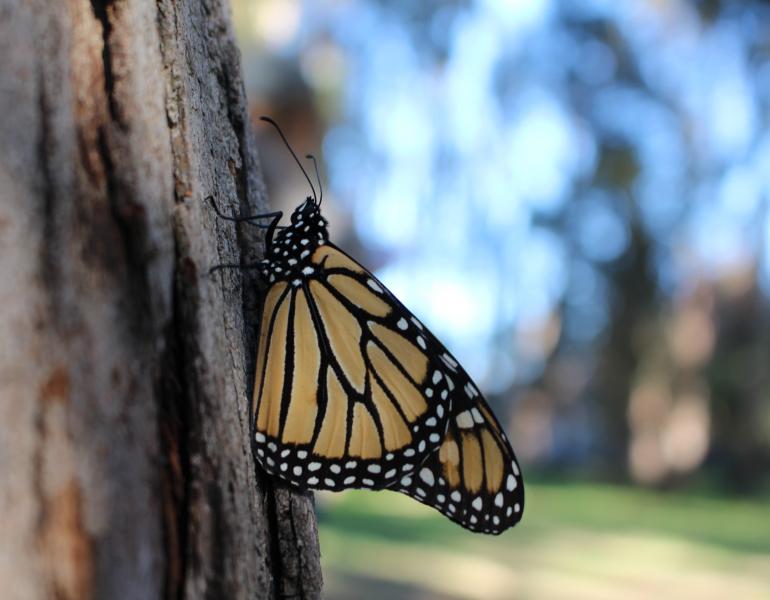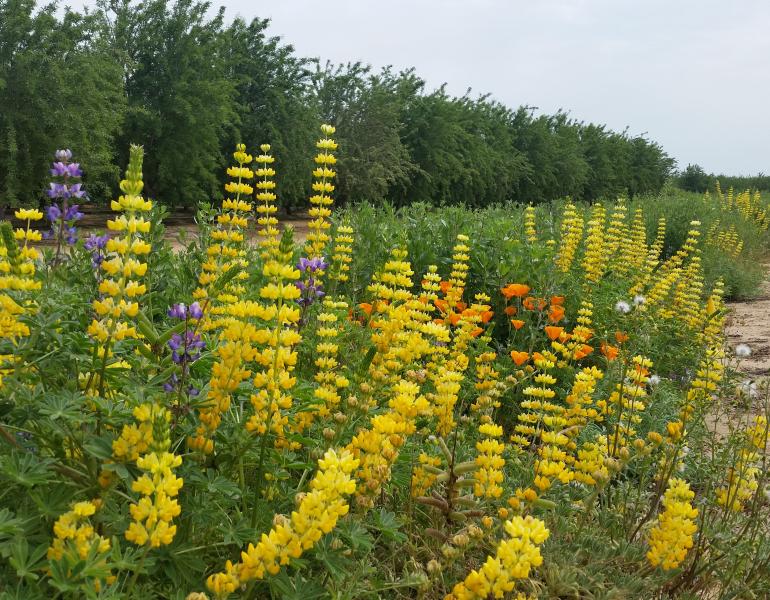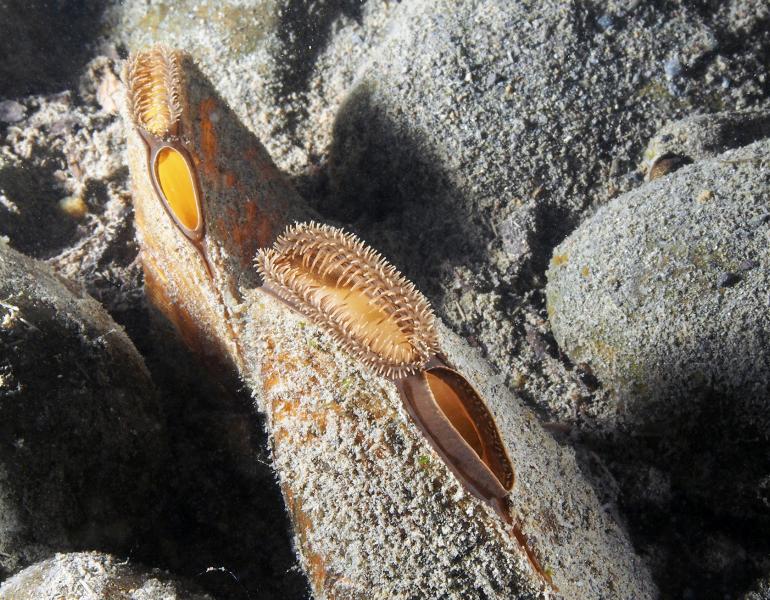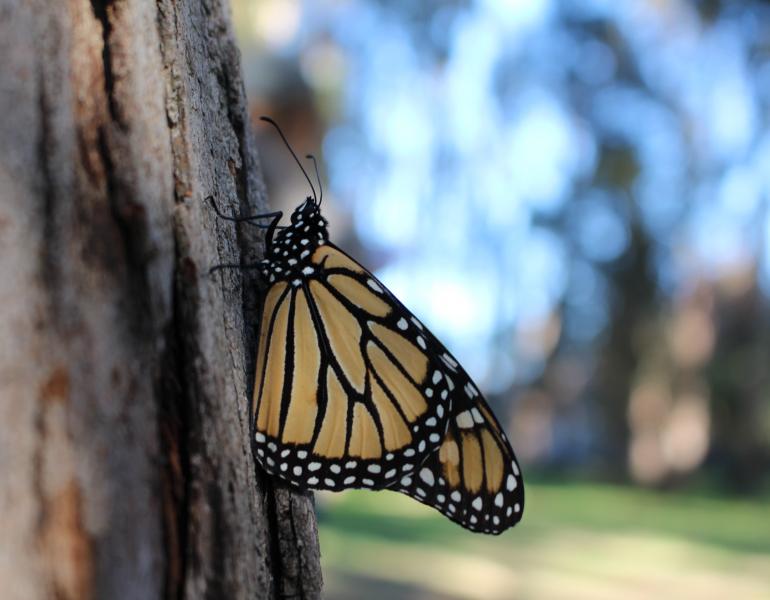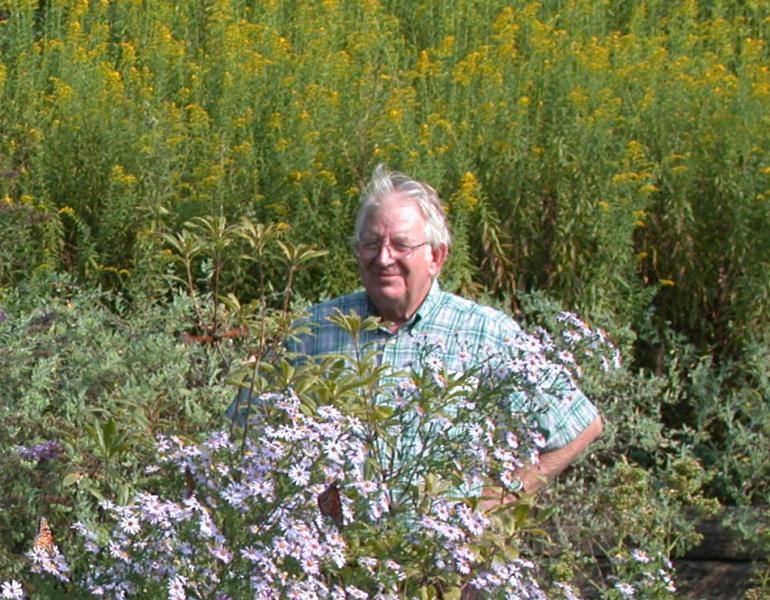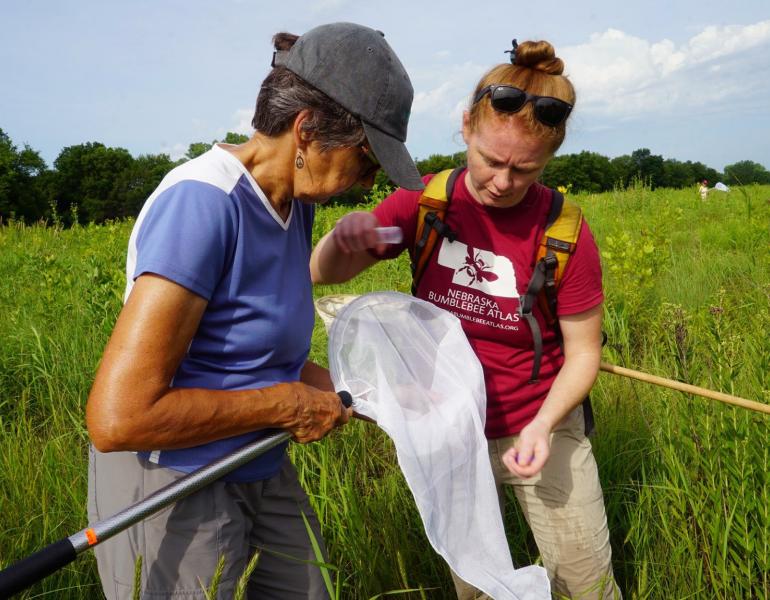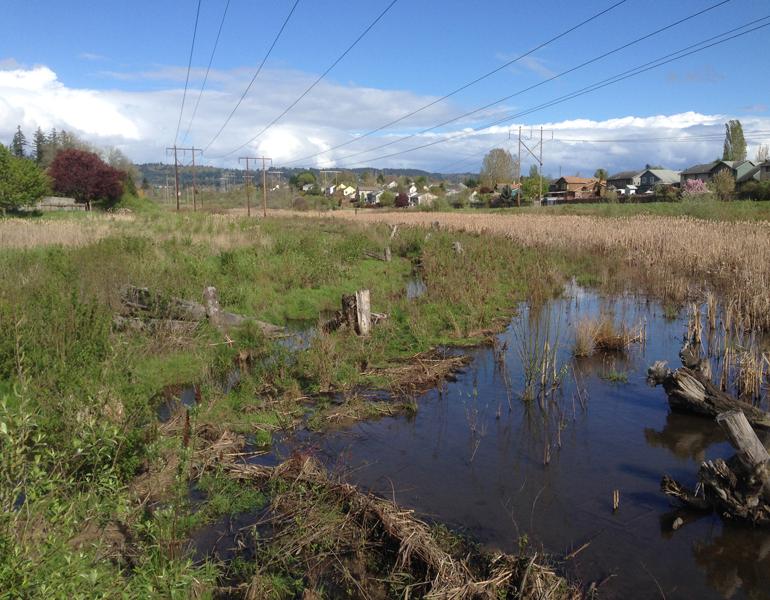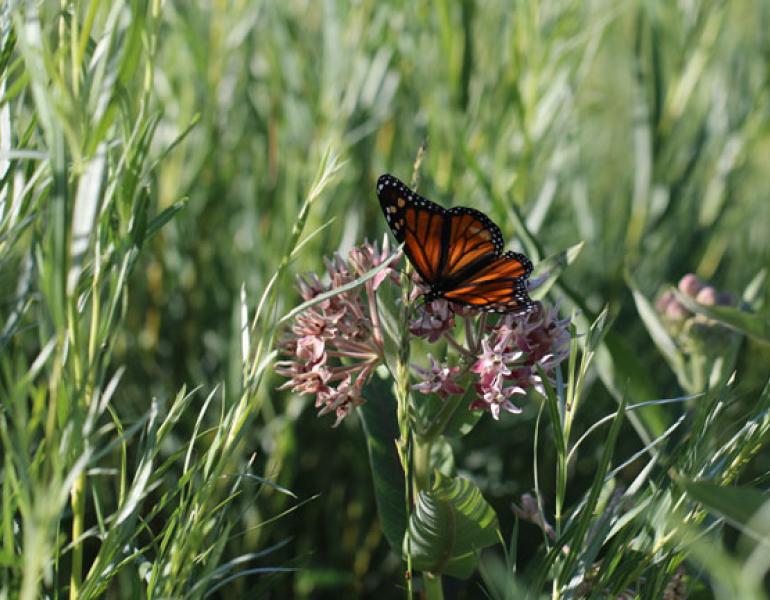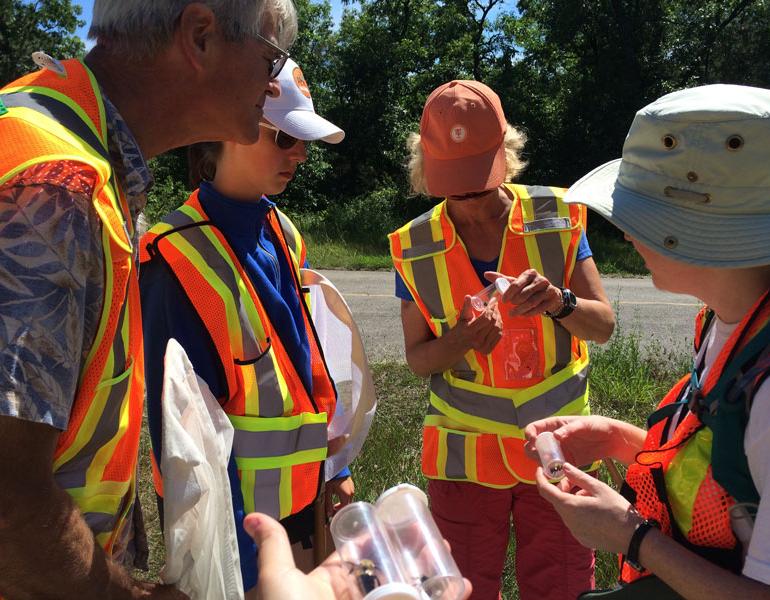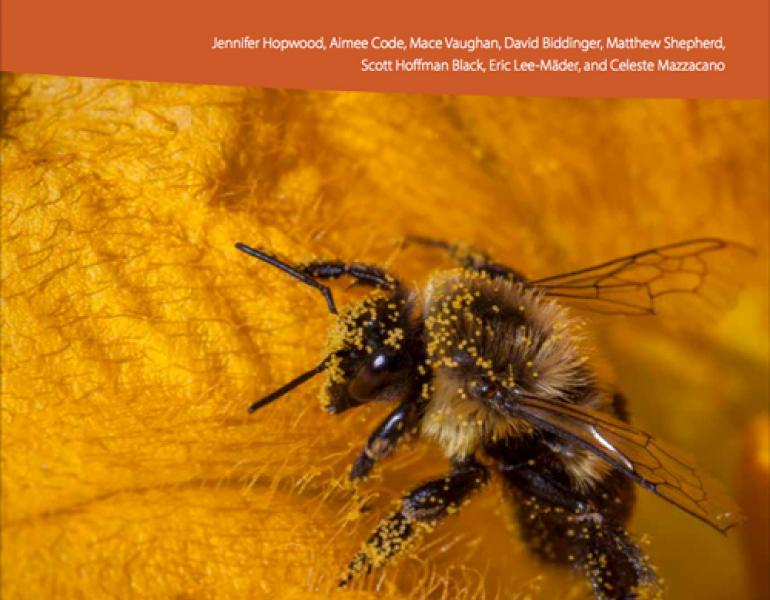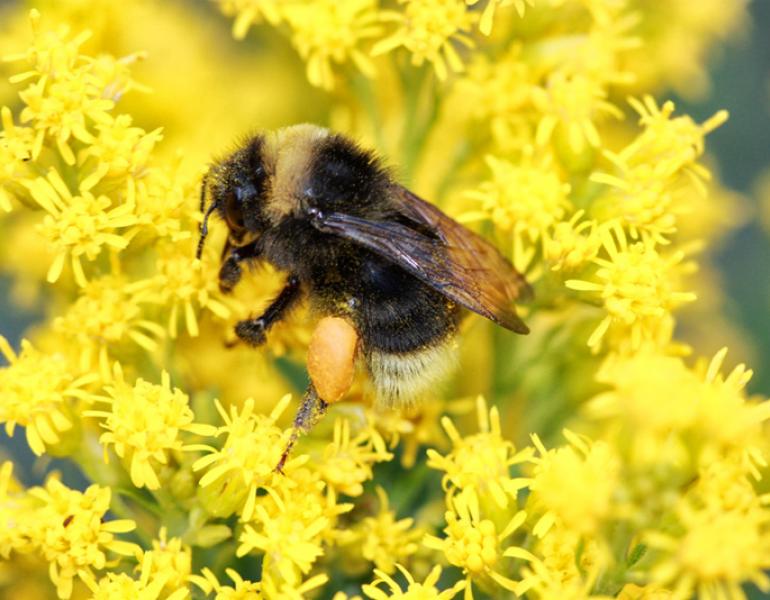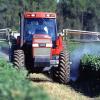Regulating pesticide-treated seeds benefits both growers and wildlife — and is becoming more common.
Research
2024 DeWind Awards Fund New Research on Moth Conservation in Urban Areas
We are excited to announce this year's two award winners: Lillian Hendrick and Lucy Guarnieri!
The Merit of Mussels
Freshwater mussels share our rivers and enrich our natural and cultural connections. They keep streams clean, provide habitat for other invertebrates, and support fish populations. Despite their importance, they are among the most threatened groups of wildlife and eight species were recently declared extinct.
Local Pest Challenges Spur Local Solutions in New Hampshire
Farmers in New Hampshire face challenges with pest management, made worse for berry growers by the arrival of a non-native fruit fly. Xerces' Alina Harris is working with growers, agencies, and university extension staff to find solutions that minimize pesticide use.
Announcing the 2021 DeWind Award Winners
The DeWind Awards are given annually to students engaged in research related to butterfly or moth conservation. The 2021 winners are Wendy Valencia-Montoya and Chris Halsch.
In Search of the Elusive Johnson’s Hairstreak
Old-growth forests are not exactly the habitat that comes to mind when you think of butterflies, but Johnson’s hairstreak calls these habitats home. It lives in the treetops, its larvae munching away at sprigs of mistletoe.
The Power of The Pinery: Six Years of Bumble Bee Community Science at Ontario’s Pinery Provincial Park
Pinery Provincial Park, near the southern tip of Lake Huron in Ontario, has been the site of Wildlife Preservation Canada’s Native Pollinator Initiative since 2015. Volunteers participating in this community science survey program have created a robust long-term dataset by contributing nearly two thousand species-specific bumble bee observations to Bumble Bee Watch.
New Report: How Dicamba Herbicides are Harming Cultivated and Wild Landscapes
Since 2016, more than five million acres of crops—an area roughly the size of New Jersey—have been injured by dicamba drifting off site. Concerned landowners and volunteer monitoring efforts also have raised the alarm about extensive drift damage to wild plant communities across the Midwest and mid-South.
Science Notes: How Pesticide Sampling Can Help Restore Imperiled Western Monarchs
California’s Central Valley is critical breeding habitat for migrating western monarchs. In partnership with the University of Nevada, Reno, Xerces scientists tested milkweeds growing in the valley for pesticides. Sixty-four different pesticides were found across the samples, with an average of nine pesticides per sample.
Tracking Butterfly Populations through Community Science
Last year, the Xerces Society partnered with the Cascade-Siskiyou National Monument to launchthe Cascade-Siskiyou Butterfly Monitoring Network. Though the 2020 field season is facing uncertainty, there are still ways for you to get involved with butterfly research where you live.
Announcing the 2020 DeWind Awardees
In the midst of so much uncertainty, Xerces is heartened to continue our annual grant program—the Joan Mosenthal DeWind Award for student research into Lepidoptera (butterfly and moth) conservation. This year, we are thrilled to award three students research grants: Douglas Boyes, Jayme Lewthwaite, and Max Ferlauto.
Sowing Uncertainty: What We Do and Don’t Know about the Planting of Pesticide-Treated Seed
The lack of data on pesticide-coated seed compromises our ability to make informed decisions about pesticide risk.
Monarchs Overwintering in Mexico Down 53%
This decline makes it clear that monarchs are not recovering and still urgently need Endangered Species Act protection in the United States and extraordinary conservation efforts throughout North America. Learn how to help here.
Thanksgiving Count Shows Western Monarchs Need Our Help More than Ever
The western monarch population remains at a critical level. With some luck and a lot of hard work, we have hope that we can save this incredible migration.
Xerces' Holistic Approach to Conservation
We at the Xerces Society view our work as an interconnected whole rather than as separate parts. To achieve conservation success, we must understand both science and policy. We need to inspire people and at the same time empower them with the tools they require.
Climate News Roundup: IPCC Lands Report
When most people think about climate change, they likely think of CO2 emissions from cars or factories. But the way land is used and managed has a significant impact on the climate.
Still Questing for Bee Nests
Did you beat the odds this year and spot a bumble bee nest? If so, we really want to hear from you for York University’s #Quest4BeeNests research project!
DeWind Alumnae Publish Three New Research Papers about Monarch Butterflies
Together, these publications contribute to our growing understanding of how human actions can hurt—or help—monarchs.
Western Monarchs: Notes from the Field
Staff from the Xerces Society and our partners have been keeping close eyes on the imperiled western monarch population at study sites in California, Nevada, Oregon, Washington, and Idaho as part of a multi-year collaborative research project.
To Protect Pollinators We Must Address All Risk Factors
Recent media coverage of a study on Tilia trees could lead to a dangerous misinterpretation of existing science—incorrectly exonerating neonicotinoid insecticides, which are known to harm pollinators.
The Source of Hope and Wonder Comes in Small Packages
Rich Hatfield, senior endangered species conservation biologist and bumble bee lead for the Xerces Society, trekked into Washington state’s Pasayten Wilderness to find the elusive high country bumble bee (Bombus kirbiellus).
Climate News Round-Up: The Power of Trees!
Carbon sequestration is a key component to mitigating the climate crisis. Trees are efficient, effective, and they can be deployed on a large scale. So plant a native tree today!
New Xerces Fact Sheet Takes a Deeper Look at Fungicides and Their Effects on Pollinators
Introducing Protecting Pollinators from Pesticides: Fungicide Impacts on Pollinators.
Community Science Powers New Western Monarch Studies
Western monarch researchers and community scientists have been busy, contributing information vital to understanding the situation facing this imperiled population.
5 Ways Wildlife Preservation Canada’s Bumble Bee Recovery & Conservation Initiatives Benefit from Bumble Bee Watch
Wildlife Preservation Canada’s efforts to conserve native bumble bees would be nothing without help from our volunteer community scientists across the country, and without Bumble Bee Watch.
Honoring Robbin Thorp, a Legendary Figure in North American Bee Conservation
Robbin Thorp, Professor Emeritus at University of California–Davis, has made lasting contributions to the bee conservation community in ways that might never be measured, but will certainly be felt.
Announcing the 2019 DeWind Awardees
The Xerces Society is happy to announce the 2019 DeWind awardees: Niranjana Krishnan, a PhD candidate at Iowa State University, and Molly Wiebush, a master’s student at Florida State University.
A Quest for Bumble Bee Nests: The Missing Link
Researchers at York University are recruiting members from across North America for a very important mission. Your assignment, should you choose to accept it: find and submit sightings of bumble bee nests.
Photo Essay: Trinational Monarch Meeting and Exploring Mexico’s Monarch Overwintering Sites
Xerces Society Endangered Species Conservation Biologist and Western Monarch Lead Emma Pelton recounts her recent experience in Mexico with this photo essay.
New Year’s Count of Western Monarchs Confirms Decline, Trends Seen in Previous Years
Overall, the count data revealed an average decrease of 38% between the Thanksgiving and New Year’s counts.
Record Low Number of Overwintering Monarch Butterflies in California—They Need Your Help!
We urge you to join us and our colleagues in the western monarch science and conservation community in taking meaningful, swift action to help save western monarchs.
Climate News Round-Up: January 2019
Climate change is an unprecedented global challenge. Angela Laws, our resident climate change expert, reviews recent news on the topic and provides concrete ways to help.
Are Freshwater Mussels in Hot Water?
Freshwater mussels play an important role in maintaining water quality in creeks. Climate change is altering water conditions, impacting the mussels and the fish on which they rely for part of their life cycle.
Early Thanksgiving Counts Show a Critically Low Monarch Population in California
The California overwintering population has been reduced to less than 0.5% of its historical size, and has declined by 86% compared to 2017.
Keeping the Lights Burning: The Status of Fireflies in the United States and Canada
Fireflies are well loved, but they may be in trouble. Xerces will continue to seek a better understanding of these enchanting animals and how best to protect them.
Celebrating the Legacy of Rachel Carson
Reflecting upon the impactful work of a woman writer, scientist, and environmental advocate on the anniversary of the publication of Silent Spring.
Lincoln Brower: A Life Well Spent
Remembering a ground-breaking monarch researcher, a passionate advocate for monarchs, and a beloved member of the conservation community.
Unblinded by Science
As the anniversary of the March for Science approaches, we reflect on ways science has informed our conservation efforts over the past year.
Scientists Urge Action to Protect Waters from Neonicotinoid Insecticides
Will California’s regulators take steps to curtail neonicotinoid water pollution? If they take the advice of scientists, they will.
Very Low Numbers of Monarchs Overwintering in California may Reflect an Unusual Fall
Unusual fall weather may have contributed to the lowest overwintering western monarch population recorded since 2012.
Wildlife Preservation Canada Continues Training “Bumble Bee Watchers”
Begun in 2015 at one location in Ontario, Wildlife Preservation Canada has expanded Bumble Bee Watch citizen science training programs to multiple locations across Canada. The programs are held in areas with historical observations of at-risk species.
New Fact Sheet Highlights Risks to California’s Surface Water from Insecticides
Neonicotinoids have been found in California’s rivers and streams at levels known to harm or outright kill aquatic invertebrates.
Science: Something Worth Marching For
Science underpins all that we do. That's why we're proud to be partners in the 2017 March for Science.
New Report: How Neonicotinoids Can Kill Bees
To bring clarity to the debate and to inform discussion, the Xerces Society has published How Neonicotinoids Can Kill Bees. Summarizing hundreds of studies, the new report provides an in-depth look at the science behind the role these insecticides play in harming bees.
Monarch Butterflies in the Western United States
Much of the focus on monarch butterflies is on the eastern population. Monarchs in western North America are in greater decline and need conservation help.
Climate Change Driving, Not the Only Passenger; Bumble Bee Conservation in Context
Interpreting recent research about the impacts of climate change on bumble bees, providing context for the results, and examining how they may affect conservation efforts.

